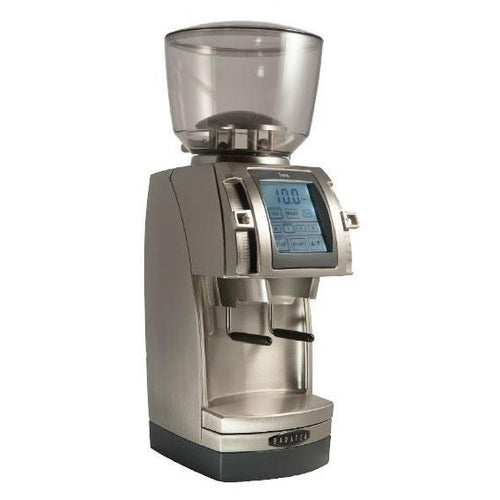How an Industrial Coffee Grinder Can Improve Your Brew Quality
How an Industrial Coffee Grinder Can Improve Your Brew Quality
Blog Article
Industrial Coffee Mill Overview: Boost Efficiency and Top Quality
In the competitive landscape of coffee manufacturing, selecting the right industrial coffee mill plays a crucial function in enhancing both effectiveness and product high quality. Comprehending the subtleties of various mill types and vital attributes-- such as customizable work setups and robust construction-- can dramatically affect the last taste profile of the coffee.
Recognizing Mill Kinds
When selecting a commercial coffee mill, comprehending the numerous kinds offered is crucial for maximizing both taste extraction and functional effectiveness. The two primary sorts of mills are blade grinders and burr mills. Blade mills make use of sharp blades that cut coffee beans right into irregular sizes, bring about uneven removal and potentially unfavorable tastes. While blade grinders are frequently extra suitable and cost effective for small operations, they are usually not suggested for commercial usage.

Inevitably, selecting the ideal type of grinder is integral to keeping quality and performance in coffee production, making it essential for services to buy high-quality burr grinders for ideal outcomes.
Key Functions to Consider
Choosing a commercial coffee mill requires mindful consideration of a number of vital features that can considerably affect both performance and the general coffee experience. Among the key aspects to evaluate is the grinding device. Burr grinders are generally chosen over blade mills, as they provide a constant work dimension, which is crucial for optimal extraction and taste.
An additional vital feature is the grinder's capacity. Relying on the quantity of coffee you require to procedure, pick a version that can manage your demands without sacrificing speed or top quality. In addition, consider the grind setups offered. A versatile grinder with several settings allows you to tailor the grind size to different brewing methods, enhancing the coffee's taste account.
Examine the grinder's sound degree, particularly in an active coffee shop or production atmosphere, where too much noise can be turbulent. Spending in a grinder that stabilizes these features can considerably enhance both operational efficiency and the top quality of the coffee served.
Optimizing Grinding Process
To attain the most effective results in coffee prep work, enhancing the grinding procedure is crucial. The work size substantially affects extraction, flavor, and total quality of the brewed coffee. Different brewing techniques call for specific grind dimensions; for example, coffee requires a great work, while French press necessitates a rugged appearance. Understanding the connection in between grind size and brewing technique is the very first step in optimization.


Additionally, keeping track of the grinding rate can maximize the process. Slower grinding often generates much less warm, preserving fragile flavors and aromas. On the other hand, much faster grinding may generate excessive warm, negatively affecting the coffee's high quality.
Upkeep and Care Tips
Correct upkeep and care of commercial coffee mills are important for ensuring optimum performance and long life. Regular cleaning is the foundation of maintenance; residue buildup can affect flavor and grinding performance. It is advisable to clean up the mill after each use, cleaning down the exterior and getting rid of any type of coffee premises from the burrs.
In addition, check the grinding burrs for wear and tear. Dull burrs can compromise work uniformity, so they should be changed as needed. Industrial Coffee Grinder. Occasionally adjusting the mill is More Info likewise critical, as this preserves the desired grind size for various developing techniques
Lubrication of moving parts must be performed according to the supplier's requirements, as this minimizes friction and prolongs the life of the tools. It is necessary to use food-grade lubricants to guarantee security and conformity with wellness policies.
Finally, keep the grinder in a stable and completely dry atmosphere to avoid corrosion and rust. By adhering to these maintenance and care pointers, operators can enhance the effectiveness of their industrial coffee grinders while making sure premium outcome and expanded operational life.
Roi Analysis
Assessing the return on investment (ROI) for industrial coffee mills is important for businesses seeking to optimize their coffee production abilities. A comprehensive ROI analysis assists establish the economic viability of purchasing premium mills, permitting organizations to consider the first costs against potential gains.
Analyze the purchase price of the mill, including installation and any kind of needed adjustments to existing infrastructure. High-performance mills commonly lead to decreased grinding time and increased throughput, navigate to these guys which can dramatically improve performance.
Furthermore, consider the influence on item quality. Industrial Coffee Grinder. Superior mills yield an even more consistent work size, which can enhance flavor profiles and consumer contentment, ultimately driving sales. By raising the high quality of the end product, organizations can validate greater prices, bring about enhanced revenue
Final Thought
In summary, an industrial coffee grinder plays a critical role in enhancing both efficiency and product quality within coffee manufacturing. Inevitably, the strategic financial investment in a dependable grinder adds significantly to improved earnings and competition in the coffee market.
In the competitive landscape of coffee production, selecting the right commercial coffee mill plays an essential function in enhancing both efficiency and item top quality. The 2 main types of grinders are blade mills and burr mills. Within the burr mill classification, there are flat burr grinders and conelike burr mills, each with its advantages. Burr grinders are typically chosen over blade company website grinders, as they offer a consistent work dimension, which is critical for ideal extraction and flavor.
In recap, an industrial coffee mill plays a crucial function in enhancing both effectiveness and product high quality within coffee production.
Report this page